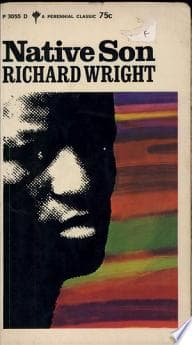- Published on
Native Son
- Authors

- Name
- Richard Wright
- @search?q=Richard Wright

Native Son by Richard Wright
Overview
Key Themes
- Racial Injustice and Poverty: The book highlights the harsh realities of racial segregation and poverty in America, particularly for African-Americans in the early 20th century.
- The Impact of Society on Individual Destiny: Bigger's character exemplifies how societal pressures and racial discrimination can shape an individual's choices and fate.
- The Human Response to Oppression: The novel explores the complex psychological and emotional responses of those living under systemic oppression.
Synopsis
Part 1: The Plight of Bigger Thomas
- Bigger, trapped in Chicago's 'black belt,' faces constant racial prejudice and poverty.
- His life is a series of struggles, leading to feelings of anger, frustration, and a sense of entrapment.
Part 2: Crime and Consequences
- In a moment of panic, Bigger accidentally kills the daughter of his wealthy white employer.
- His attempt to cover up the crime escalates the situation, leading to more tragic events.
Part 3: Legal Repercussions and Social Reflections
- Bigger's guilt becomes evident, and he is forced into hiding.
- A manhunt ensues, leading to his arrest and trial. Despite his actions, Bigger does not become a martyr; he is depicted as a product of his oppressive environment.
Conclusion
"Native Son" is a raw and honest portrayal of the societal issues of the era. Wright avoids romanticizing Bigger's character, instead presenting a realistic depiction of the damaging effects of systemic racism and poverty.
Critical Reception
- The novel has been praised for its unflinching portrayal of the realities of racial injustice.
- It has been noted for its impact on American culture and literature, particularly in how it addresses the complexities of race relations.
Significance
Richard Wright's "Native Son" remains a significant work for its bold narrative and its ability to provoke thought and discussion about race, poverty, and the human condition in America.
